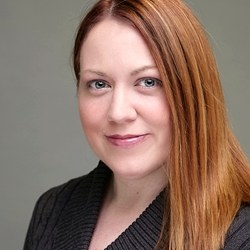If not for Simeon Horvitz, my favorite college professor, I wouldn't have become a lawyer. He taught consumer law at Bentley University (my alma mater), and after I took his course he served as a valuable mentor for me.
Don't miss a MarketingProfs podcast, subscribe to our free newsletter!
"Si" was a true original who'd joke his way through a lecture on consumer products—but also mark you tardy if you came through the door two minutes late. I registered for his consumer law class sophomore year, thinking it would satisfy my business law requirement. After a week, I found that it wasn't the right course to round out my business degree requirements, but I chose to stay in the class anyway. Si was that entertaining!
He supervised my work as a mediator for the Massachusetts Attorney General's Office, wrote letters of recommendation to law schools on my behalf, and later connected me with other lawyers for internships and jobs. My career would definitely have unfolded differently without his mentorship.
Did you have mentors when you were starting out?
Mentorship has real, lasting benefits for both the mentor and the protege, but some young professionals are reluctant to reach out when they need guidance. Likewise, some industry veterans would love to share their experience to help a fledgling marketer, but they're not sure they have enough time or they don't know how to find someone who'd value their perspective.
Claire Diaz-Ortiz has written the book on mentoring. Actually, she's co-written the book on mentoring... with her mentor, Ken Blanchard, author of The One Minute Manager.
I invited Claire to Marketing Smarts to discuss their book, One Minute Mentoring: How to Find and Work With a Mentor—and Why You'll Benefit From Being One.
Here are just a few highlights from my conversation with Claire:
You don't have to be perfect to make a good mentor (08:06): "A really good mentoring relationship allows the mentee to feel empowered. I think this is very important. Mentors are looked to for advice and guidance and direction, and I think this idea that...the mentor is the benevolent person that will dispose the wisdom to the mentee, [that] is the idea that we all have in our minds of what a mentoring relationship really is. But, in practice, the best, best types of mentors are actually not those sort of people that stand on high and tell you how to do things, but are people who can be authentic enough to share where they might need some help or some support or some advice."
Mentoring, coaching, and therapy are very different things (10:58): "In the last 10 years, there's been a renewed interest in mentoring. But at the same time, there's a lot of conflation between these ideas of mentoring and coaching...or even mentoring and advising or...the idea of therapy, sort of jumbling them all together.
"In reality, these are all different practices. Mentoring is significantly more holistic than coaching. Coaching, which helps you reach a specific objective, often a performance-related objective, is something that is a narrower practice, whereas when you're finding a mentor, you're maybe looking at your whole personal life or your whole professional life or your whole life all at once, but in a more holistic manner."
Before you can find a mentor, think about what type of mentoring relationship you want (12:58): "There are a few different types of mentoring partnerships, and I think understanding what type...might be most useful for you is important. For example, there is peer-to-peer mentoring in a company context, where you're working in, say, the sales department at a specific company and you want to improve upon your abilities to sell and do well and achieve, so you basically seek out a mentor within that context.
"Another pretty common type of mentoring in this day and age is new-hire mentoring, which is a similar idea. Someone is hired into a firm or company and they're paired with a seasoned, wiser person that can help them get their feet wet at the company and understand where their path might be...
"Another type of mentoring...is cross-generational mentoring. This is the relationship that Ken Blanchard and I have. Ken is my mentor, I am his mentee. We are more than 40 years apart, and we can learn from each other. So the first step in trying to figure out where you can go to find a mentor is to figure out what type of mentoring relationship you want. Once you have an idea of the type of relationship, you can find some of the paths to getting there....
"For mentoring partnerships to work, there has to be a certain level of engagement. You need some form of regular meetings, regular interactions, and for that to happen you have to be invested. The first test to see if you're invested is to spend enough time to think about what type of mentor you really want."
To learn more about Claire, visit ClaireDiazOrtiz.com, and be sure to follow her on Twitter: @claire. And don't forget to pick up a copy of One Minute Mentoring: How to Find and Work with a Mentor—and Why You'll Benefit from Being One.
Claire and I talked about much more, including what makes a mentoring relationship work and how to find the right match, so be sure to listen to the entire show, which you can do above, or download the mp3 and listen at your convenience. Of course, you can also subscribe to the Marketing Smarts podcast in iTunes or via RSS and never miss an episode!
Intro/Outro music credit: Noam Weinstein.
...sign up for free to continue reading
Don't miss a MarketingProfs podcast, subscribe to our free newsletter!
Published on July 19, 2017






